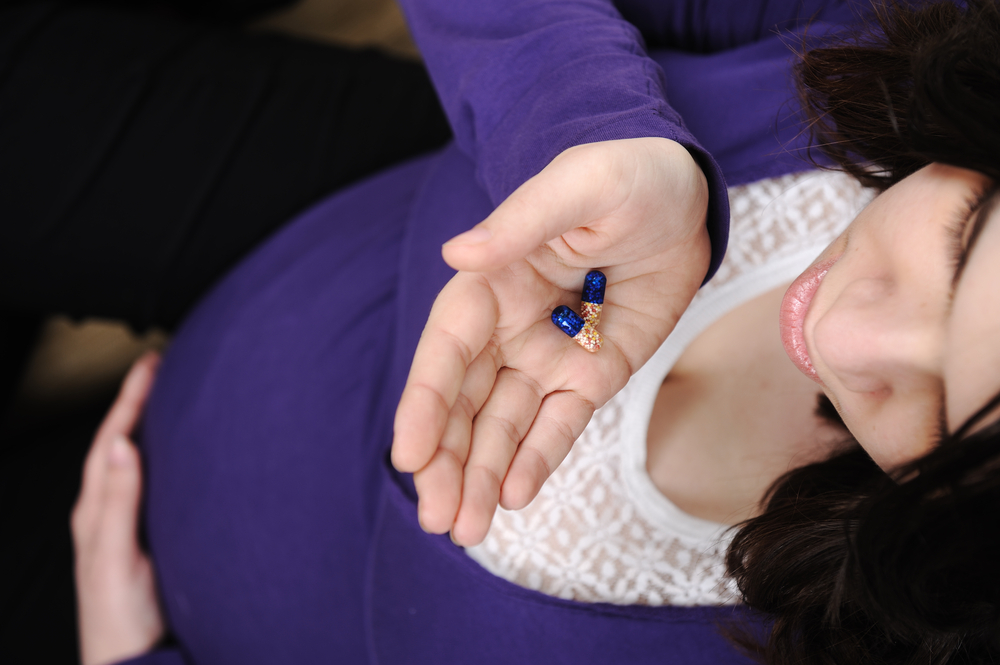
Approximately 1 in 10 new mothers are prone to depression1, with suicide a leading cause of maternal death2 in the UK. Postnatal depression can increase the risk of the child developing depression. The long-term consequences of antidepressants in pregnancy are unclear, and difficult to study. Treating depression in pregnancy is important, but prescribing in pregnancy is tricky and there is limited evidence to guide clinical decision making.
The British Journal of Psychiatry has published three papers about prescribing selective serotonin re-uptake inhibitor (SSRI) antidepressants in pregnancy; an original research paper4 and two invited commentaries5, 6. This blog is principally about the original research paper by El Marroun and colleagues4, but the commentaries provide interesting perspectives on the findings.
Methods
The research paper4 is a prospective study within a population-based cohort in the Netherlands called the Generation R study7. This study examined three groups of children:
- A ‘reference’ group (92.5%, n=5,531); children who had no exposure to prenatal SSRIs and a low score of maternal depressive symptoms,
- An ‘exposed to depression’ group (6.3%, n=376); children exposed to clinically relevant depressive symptoms but no SSRIs,
- A small ‘exposed to prenatal SSRI’ group (1.2%, n= 69); children exposed to SSRIs prenatally.
Other characteristics accounted for included maternal age, education, ethnicity, smoking habits, prenatal depressive symptoms, postnatal depressive symptoms at 3 years, child gender and age.

This recent study looks at prenatal SSRI exposure and autism risk.
Results
‘Exposed to depression group’ vs. the reference group:
- Had more pervasive developmental problems (Odds ratio (OR) = 2.02, 95% Confidence interval (CI) 1.53 to 2.66, P<0.001)
- Had slightly higher scores for autistic traits (β= 0.05, 95% CI 0.01 to 0.08, P=0.01)
- Were more likely to have affective problems (OR= 1.44, 95% CI 1.15 to 1.81, P=0.001)
The ‘exposed to SSRI group’ vs. the reference group:
- Had more pervasive developmental problems (OR= 2.58, 95% CI 1.46 to 4.54, P=0.001)
- Had even higher scores for autistic traits than the ‘exposed to depression’ group (β=0.10, 95% CI 0.02 to 0.18, P<0.01)
- Were less likely to have affective problems (OR= 1.37, 95% CI 0.87 to 2.16, P=0.17)
Limitations
- A big problem in studying this relationship is that you’d expect mothers to only take antidepressants if they are are depressed. Instead, it may be that prenatal depression causes autism rather than the antidepressant medication. This is called confounding by indication, and is a common problem in observational studies like this one.
- The authors attempt to address this by comparing an ‘exposed to depression’ with an ‘exposed to prenatal SSRI group’. However, it is likely that mothers of those exposed to SSRIs were more depressed at baseline than those who weren’t. Depression severity is important, and although it was taken into account, it was only measured whilst taking an SSRI and not (more importantly) before.
- Symptoms of autism were obtained using validated parent-report measures taken from the mother and father. Although these measures are useful screens in large populations, the symptoms of autism or autistic traits are not the same as clinically relevant autism.
- There were fewer children in the ‘exposed to SSRI group’ with wider confidence intervals (CIs). In their invited commentary, Petersen et al6 ,made an interpretation in relation to this. They noted that the CIs of the ‘exposed to depression’ group lie within that of the ‘exposed to SSRI’ group for pervasive developmental problems. This means that there is no evidence of a difference of the risk of pervasive developmental problems between the groups.

There is no evidence of a difference of the risk of pervasive developmental problems between the ‘exposed to depression’ and ‘exposed to SSRI’ groups.
Discussion
The authors concluded that:
Prenatal SSRI exposure was associated with autistic traits
So, what should clinicians and mums-to-be make of these findings?
- Well, this paper talks about relative risk of autistic traits (the risk between two different groups) and not about the absolute risk (an individual’s risk) of having a child with autistic spectrum disorder (ASD) if they take an SSRI in pregnancy. To put this into context, 1 in 100 children in the general population develop ASD. If the findings of this study are correct, this only increases to 2 in 100.
- A pregnant woman with depression should be treated as an individual, with features of her depression, the risks associated with it, any previous response to treatment and her personal circumstances (i.e. a good psychiatric history) taken into account.
- We cannot be sure from this study that ASD is not associated with maternal prenatal depression rather than antidepressant exposure. So, all mums-to-be who think they might be depressed should seek advice from their healthcare provider to help them make a decision about treatment.
- Healthcare providers should still consider antidepressants such as fluoxetine (+/- a talking therapy) for severe depression, or where there are concerning features. A talking therapy may be a better alternative for less severe illness.
- Local services should ensure that psychological therapies are easily accessible by pregnant women, but in spite of the Improving Access to Psychological Therapies initiative (where pregnant women are prioritised), it can still take a long time to get therapy, by which time things may have changed considerably.

IAPT prioritises pregnant women, but it can still take a long time to get therapy, which may for some be too late.
Links
- O’Hara & Swain. Rates and risk of postpartum depression –a meta-analysis. Int Rev Psychiatry 1996;8:37–54.
- Cantwell R, Oates MR. Chapter 11: Deaths from psychiatric causes (from the Eighth Report of the Confidential Enquiries into Maternal Deaths in the United Kingdom, 2006–2008). Br J Obstet Gynaecol 2011; 118 (suppl 1):132–42.
- Pearson et al. Maternal depression during pregnancy and the postnatal period: risks and possible mechanisms for offspring depression at age 18 years. JAMA Psychiatry. 2013 Dec;70(12):1312-9.
- El Marroun et al. Prenatal exposure to selective serotonin re-uptake inhibitors and social responsiveness symptoms of autism: population-based study of young children. The British Journal of Psychiatry (2014) ; 205: 95–102.
- Jones & McDonald. Living with uncertainty: antidepressants and pregnancy. The British Journal of Psychiatry (2014)205: 103-104.
- Petersen et al. Prenatal exposure to selective serotonin re-uptake inhibitors and autistic symptoms in young children: another red herring? The British Journal of Psychiatry (2014)205:105-106.
- Jaddoe et al. The Generation R Study: design and cohort update 2010. Eur J Epidemiol (2010) 25:823–841.



Thanks for this review, I very much agree with your interpretation of the findings. I do wonder about causality in this relationship: It is well known that autism has a strong genetic component, which means that it is likely that at least one of the parents has autistic traits, which in turn may be related to pre and post natal depression?
[…] I caught sight, by accident, of a very good review on the Mental Elf of an article discussing the impact of prenatal depression and the use of specific pharmaceutical treatments on […]
RT @Mental_Elf: Don’t miss – Prenatal SSRI exposure and autism risk: a dilemma for mums-to-be with depression http://t.co/UpbcKnOAbr #EBP
RT @Mental_Elf: Autism may be assoc. w/ maternal prenatal depression rather than antidepressant exposure. Evidence is inconclusive http://t…
Prenatal SSRI exposure and autism risk: a dilemma for mums-to-be with depression http://t.co/gRTa7cccLH via @sharethis nice blog @ag2460
[…] Recently, I blogged on a study by El Marroun et al.,1 that examined prenatal antidepressant exposure and autism risk. […]